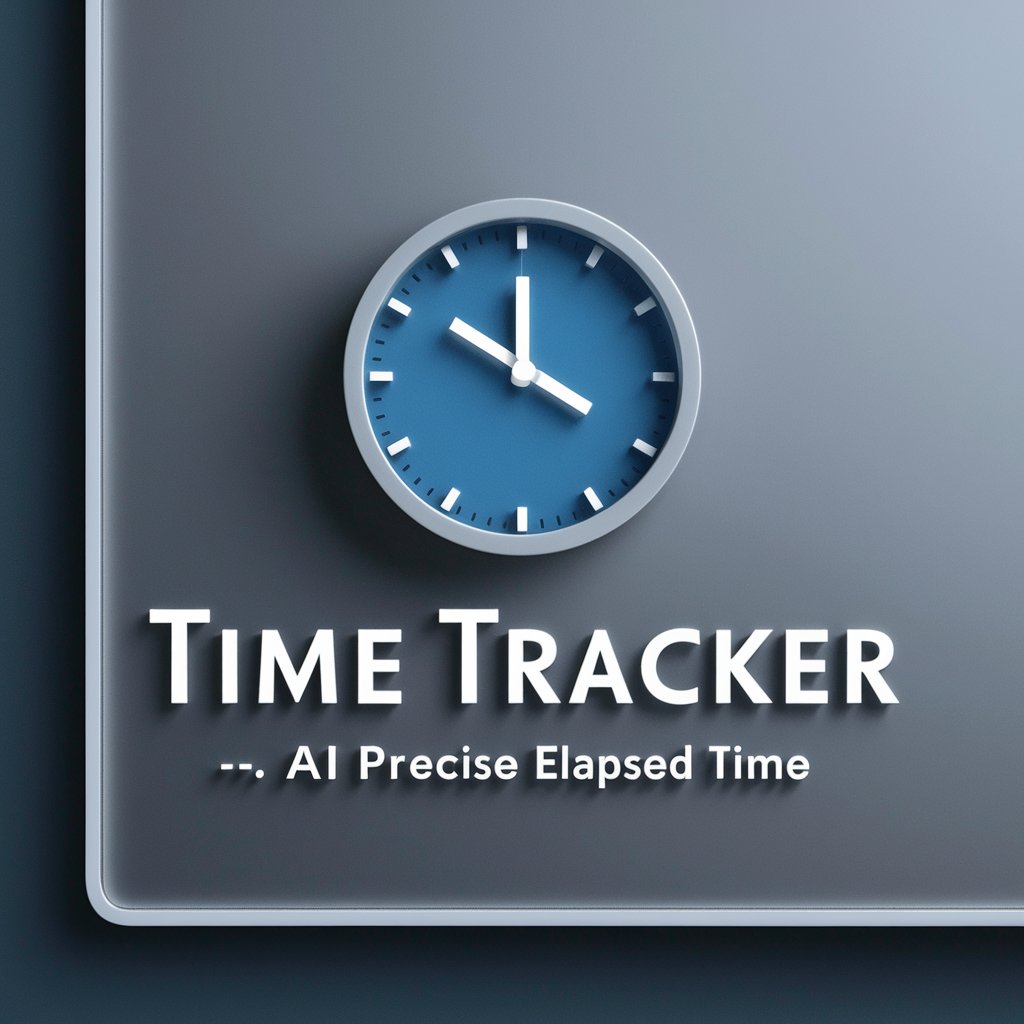Time Tracker - Precise Time Elapsed Calculation

Welcome to Time Tracker. Let's calculate precise elapsed time for you.
Accurately Track Time with AI Precision
Calculate the time elapsed since
What is the exact duration from
How many years, months, and days have passed since
Provide the elapsed time between today and
Get Embed Code
Overview of Time Tracker
Time Tracker is a specialized tool designed to calculate the elapsed time since a specific date with precision. Its primary purpose is to provide users with a clear, accurate measurement of time passed in years, months, weeks, and days. This tool is meticulously crafted to serve requests where understanding the exact duration since a particular point in time is crucial, without delving into the complexities of how these calculations are made. For example, if a user wants to know how long it has been since a significant event, such as the founding date of a company or the date of a personal milestone, Time Tracker offers a precise duration in a straightforward, easily understandable format. Powered by ChatGPT-4o。

Core Functions of Time Tracker
Calculating elapsed time since a given date
Example
If someone wants to know the exact time that has passed since their business was established on March 15, 2010, Time Tracker would provide the duration in years, months, weeks, and days as of the current date.
Scenario
This function is particularly useful for anniversaries, compliance with legal or regulatory timelines, or tracking the age of investments.
Providing precise time measurements without approximations
Example
When a user queries the time elapsed since a project's inception on June 1, 2019, Time Tracker will detail the time span in years, months, weeks, and days, eschewing vague approximations for exact durations.
Scenario
This precision aids in project management, helping to assess project duration against planning estimates or contractual obligations.
Target User Groups for Time Tracker
Project Managers
Project managers can utilize Time Tracker to accurately determine the duration of ongoing or completed projects. This facilitates effective planning, monitoring, and reporting on project timelines, essential for managing deadlines and milestones.
Historians and Researchers
For historians and researchers, precise knowledge of the time elapsed since historical events or the duration of periods under study is crucial. Time Tracker offers them the exactitude needed for scholarly work, publications, or educational content.
Legal Professionals
Legal professionals often need to calculate precise durations to comply with statutory deadlines, contractual obligations, or limitation periods. Time Tracker enables them to ascertain these periods accurately, ensuring adherence to legal timelines.

How to Use Time Tracker
1
Access the tool online at yeschat.ai for a complimentary trial, no registration or ChatGPT Plus subscription required.
2
Enter the specific date you want to calculate the elapsed time from, ensuring the format is clear (e.g., YYYY-MM-DD).
3
Specify the level of detail you require for the elapsed time (years, months, weeks, days).
4
Submit your query and wait for the precise calculation of elapsed time since the provided date.
5
For repeated use, simply adjust the date and detail level as needed for new calculations.
Try other advanced and practical GPTs
2024龙年运程预测
Unveil Your Destiny with AI-Powered Chinese Astrology

Financial Advisor Year End Review
AI-powered Year-End Financial Review

Tarot Master
Unveil your path with AI-powered Tarot insights

valuelab.ai
Empowering Potential with AI

Fairytale Island
Bringing tales to life with AI

Recommendation Letter for a Scholarship AI Writer
Crafting personalized scholarship recommendations with AI.

僕のデータサイエンス彼女ちゃん
Empowering Your Data Science Journey with AI

Zilly
Bringing Your Figurine Dreams to Life with AI

Strategic Positioning GPT Advisor
Empower Your Market Positioning with AI

New Years Resolutions Assistant GPT
Empowering your resolutions with AI guidance

新年の抱負メーカー
Craft your aspirations with AI

Healthy Menu Buddy
Simplify healthy eating with AI

Frequently Asked Questions about Time Tracker
What date formats does Time Tracker accept?
Time Tracker accepts dates in the format of YYYY-MM-DD for precision and clarity.
Can Time Tracker calculate future dates?
Yes, it can calculate the time until a future date by providing a date that is ahead of the current date.
Is there a limit to how far back Time Tracker can calculate?
No, there is no limit. Time Tracker can calculate the elapsed time from any date, regardless of how far back it is.
How precise is Time Tracker's calculation?
Time Tracker provides precise calculations down to the day, ensuring accuracy in its time measurements.
Does Time Tracker support calculations in different time zones?
Time Tracker calculates elapsed time based on dates, not specific times, so time zones do not affect its calculations.
